India, a land of alluring wildlife experiences
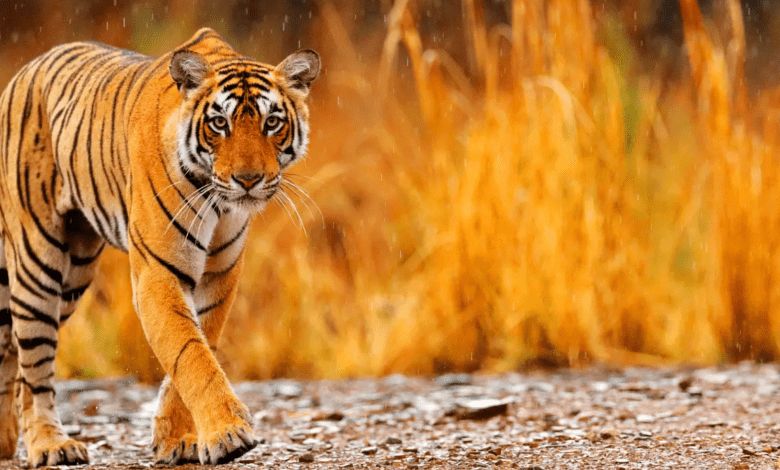
There is something about watching animals interacting in their natural environment, their hunting, feeding, playing and caring, that appeals to everyone’s basic instincts. It could be the novelty or curiosity that impels us to experience wildlife in its raw surroundings, or perhaps, witnessing the primordial nature of these wildlife interactivities strikes a chord on the strings of our evolutionary roots. No matter what the reason is, there is no denying that wildlife experiences are truly exciting, allowing us to get in touch with nature and take a break from the concrete jungle that engulfs us.
With so many wildlife vacations on offer in so many wonderful locations it is often difficult for a traveler to narrow down the choices to just one country or place.
India is blessed in that it has an abundance of spectacular ecological, topographic, climatic and geographic variations across the country that are made even more attractive by the diversity of its wildlife, and wildlife experiencing opportunities, bundled within its borders.
Whether you have two weeks to spare or two days, there is a wildlife vacation to suit you. From endangered species of wildlife to ones that have been rehabilitated in their natural ecosystems, from lumbering elephants to fleet-footed cheetahs, and on to tiny endemic species of amphibians, mammals and birds, India offers you the opportunity to see them all.
The country’s rich diversity in natural forests and sprawling parklands hosting a multitude of wildlife species makes India a magnet for tourists looking for adventure and for exploring unspoiled natural beauty in an eco-friendly tourism mode.
Wildlife abodes abound in India and span from the lofty Himalayan ranges down to the plains and coastlines. The diversity of wildlife experiences in India are amazing and its uniqueness can only be experienced.
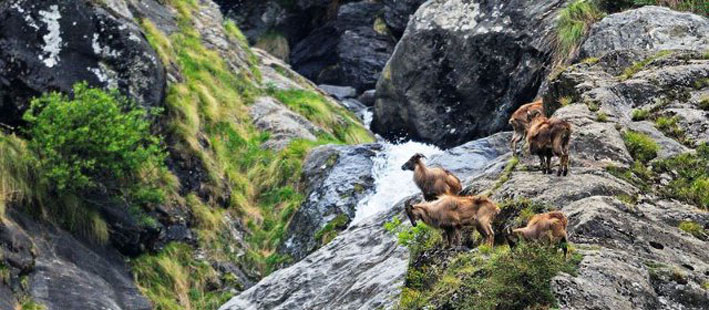
Great Himalayan National Park, Himachal Pradesh: Declared a UNESCO World Heritage Site for its outstanding biodiversity in 2014, this beautiful national park is more a space to enjoy nature than chase after animals.
A place of stunning natural beauty, with misty mountains and silvery rivers, the higher reaches of the park (accessed by trekking) are home to the Himalayan brown bear, Himalayan tahr (wild goat), bharal (blue sheep) and other magnificent mountain animals. You can also spot birds like the Himalayan griffon vulture, the huge golden eagle and Himachal’s state bird, the western tragopan.

Jim Corbett National Park, Uttarakhand: The country’s oldest national park, Corbett has always been a favorite weekend getaway from Delhi – and a popular destination for family holidays. Jim Corbett’s forest is steeped in history and locals will tell you amusing tales about the legendary figure Carpet Sahib. The sightings of elephants, wild boars and tigers are fascinating. Take a safari or sit on the forest’s edge, inside your luxury retreat, having a fine meal and enjoying the therapeutic sounds of the jungle.
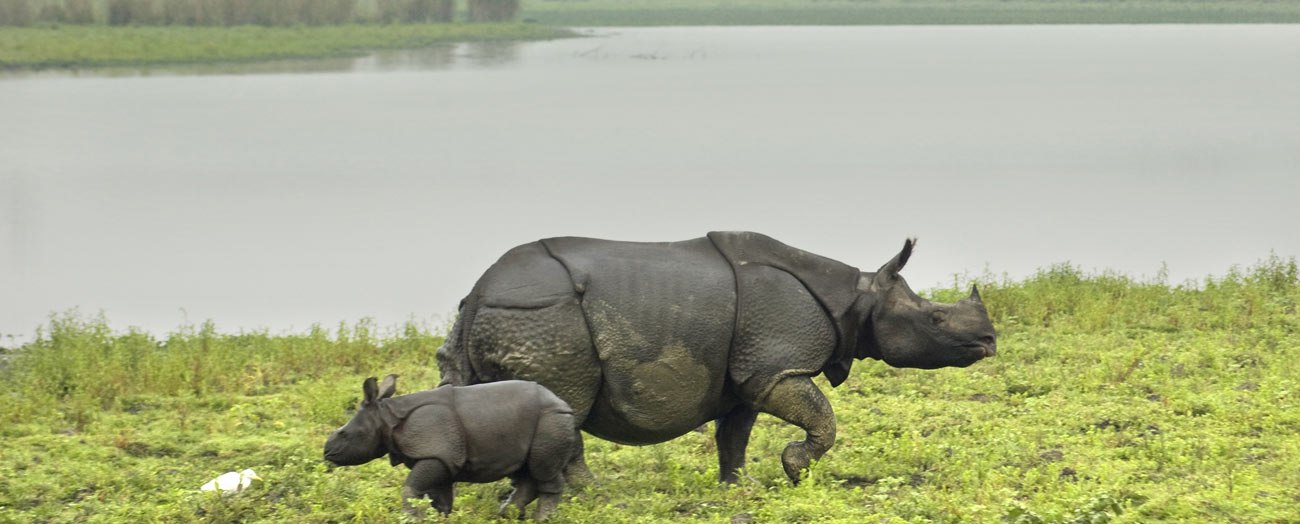
Kaziranga National Park, Assam: The only habitat of the endangered one-horned rhino, Kaziranga draws wildlife addicts from across the world for a glimpse of this massive beast. A beautiful park with tall grasslands, Kaziranga safaris are mostly on elephants rather than in vehicles. Because of its unique biodiversity, it was declared a UNESCO World Heritage Site in 1985, and is also home to tigers, bears, panthers and elephants, along with hundreds of exotic birds.
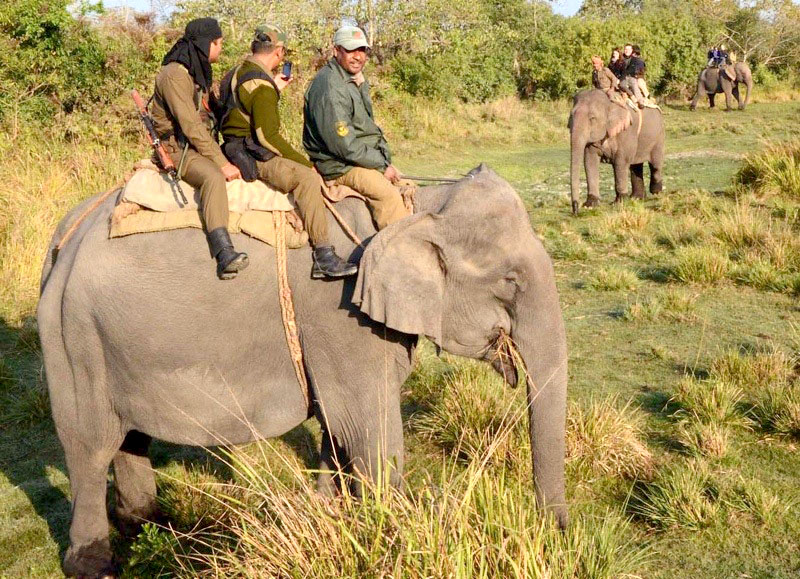
Manas National Park, Assam: The second national park in Assam that is also a UNESCO World Heritage Site, the Manas National Park is less frequented than the popular Kaziranga, which means it offers a more untouched wildlife experience. Its most famous resident is the pygmy hog, apart from other strange and wonderful creatures like the Assam roofed turtle and the golden langur. There is also the chance to spot a tiger.
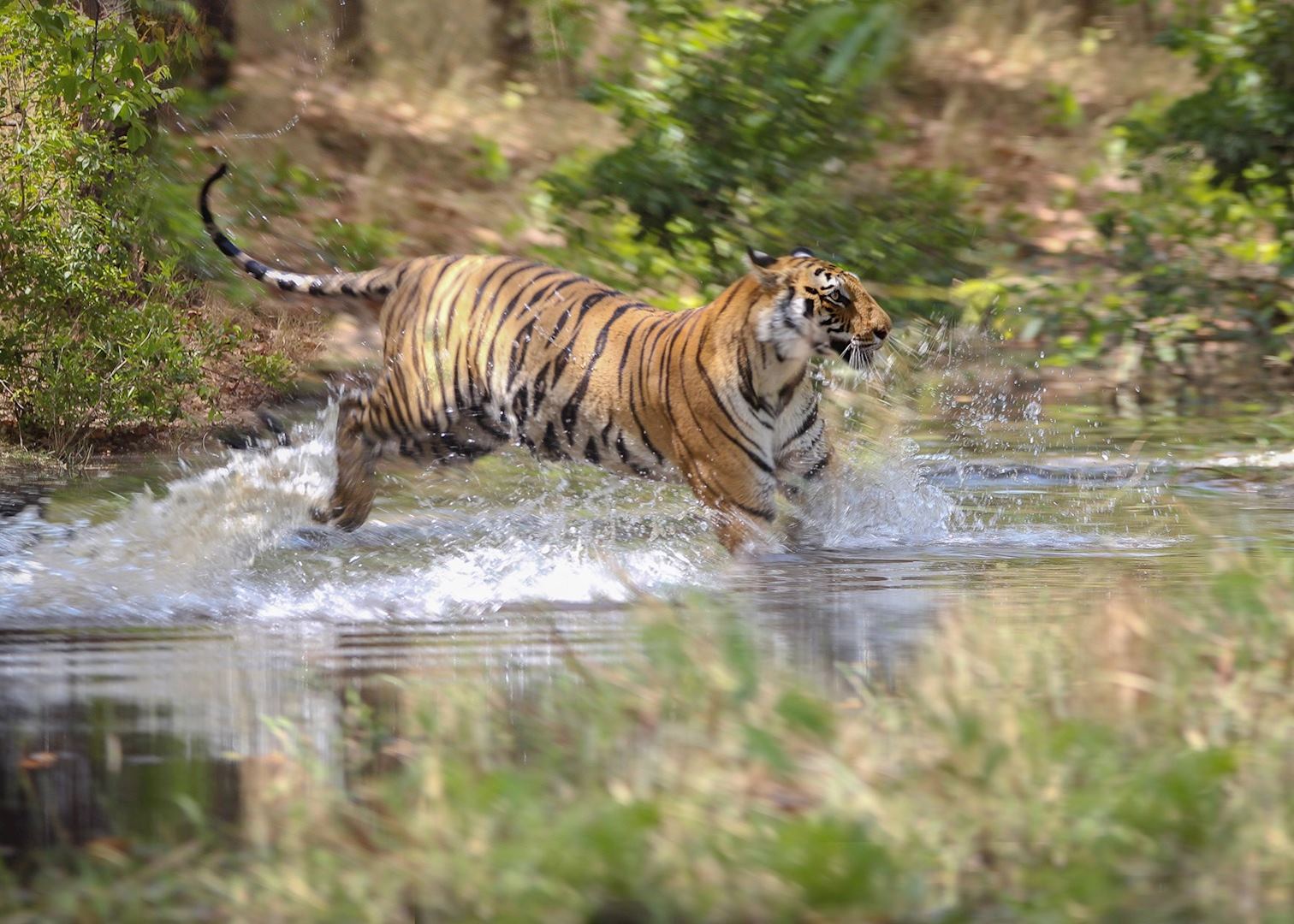
Bandhavgarh National Park, Madhya Pradesh: A relatively smaller park, it nevertheless has the highest density of tigers in the country, in addition to a vast biodiversity and topography. The 2,000-year-old Bandhavgarh Fort inside the park stands testimony to the times when this used to be hunting grounds for the Rewa maharajas, and makes for an unforgettable backdrop to jungle safaris.
Today, this National Park is a haven for animals and birds with over 250 species of birds, 37 species of mammals and 80 species of butterflies. The park also contains many rock paintings and man-made caves. Also not to miss are the White Tigers that reside in their natural habitat within this parkland.
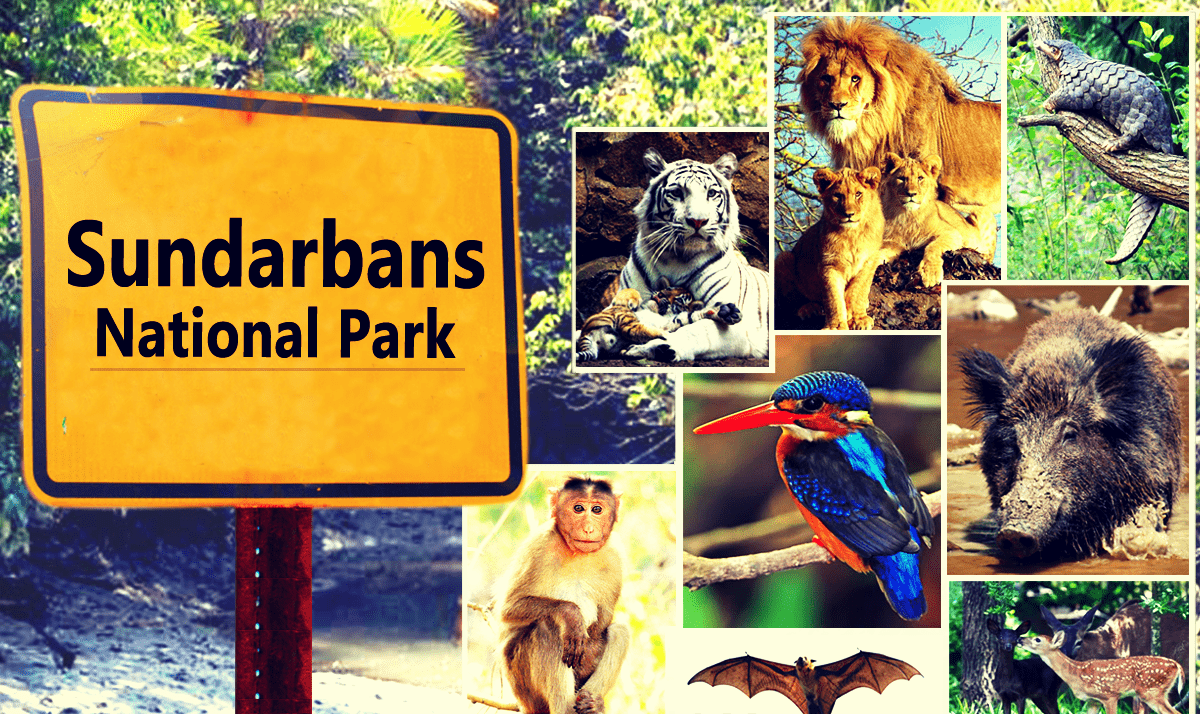
Sundarbans National Park, West Bengal: On the southern edge of West Bengal, facing the Bay of Bengal, is this unique part of the country: the world’s largest river delta with mangroves and mudflats around a network of creeks and water channels. Declared a UNESCO World Heritage Site to protect its fragile ecosystem, the Sundarbans National Park is the largest reserve for the Royal Bengal tiger, apart from being ideal territory for spotting crocs, reptiles and a large variety of water fauna.
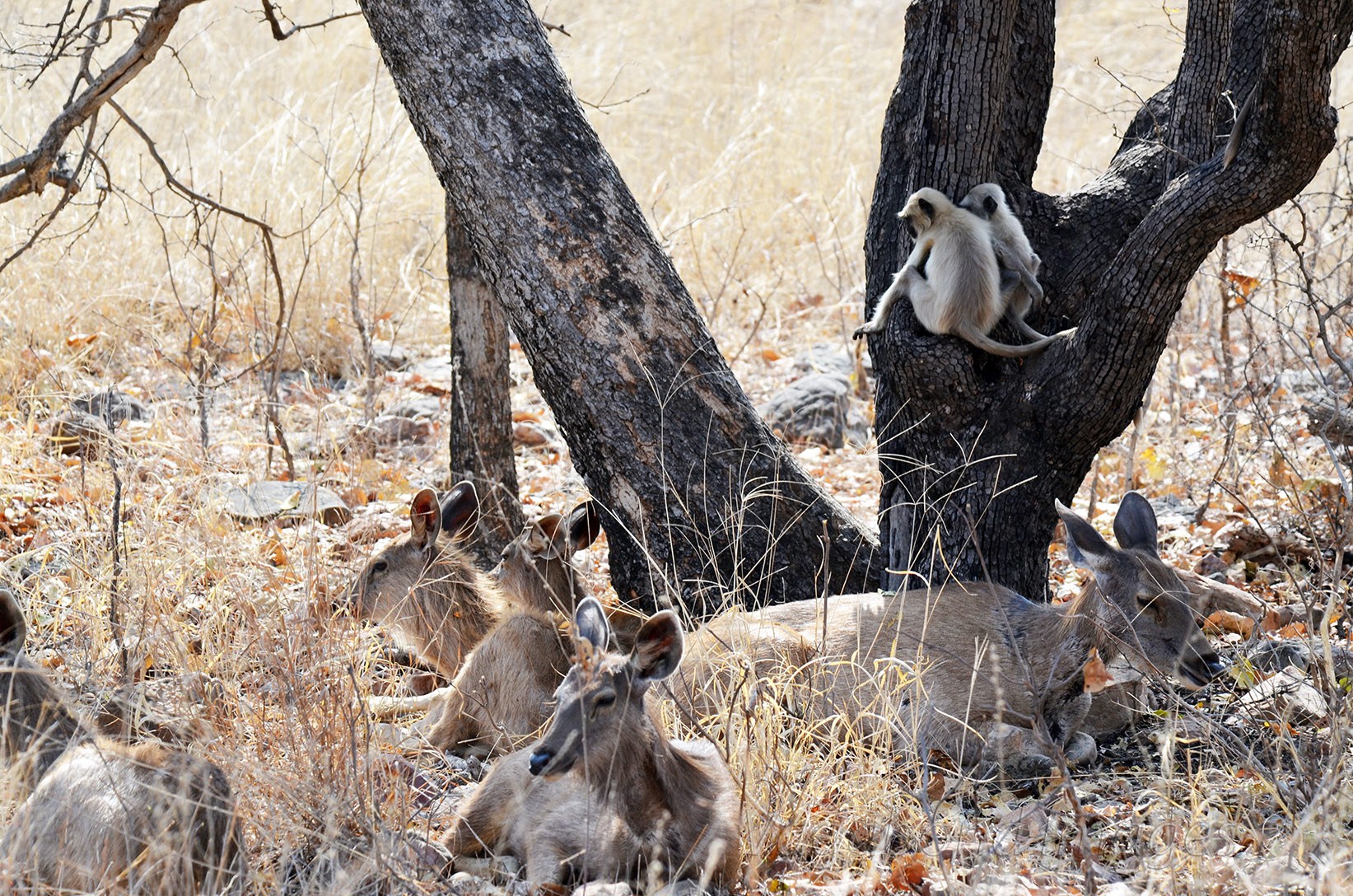
Panna National Park, Madhya Pradesh: When it comes to wildlife, Madhya Pradesh is blessed with some of the country’s best parks boasting the highest chances of a tiger sighting. Another of its gems is the verdant Panna National Park, where you can spot the sloth bear, the sambar, nilgai and, if you are lucky, the tiger and the leopard. The surroundings make for a beautiful spot to enjoy a picnic breakfast and listen to the sounds of birds, such as the blossom-headed parakeet and changeable hawk-eagle.
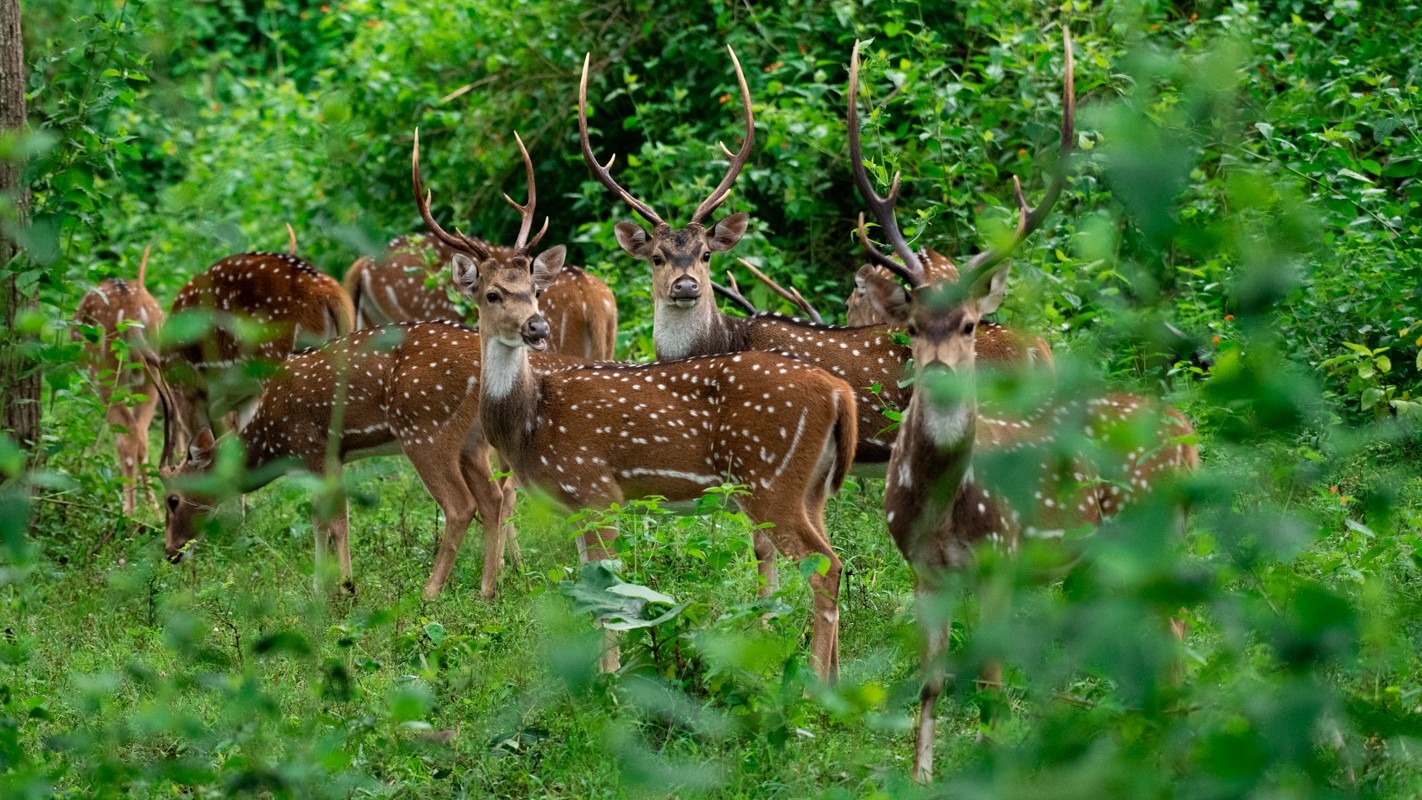
Kabini Forest Reserve, Karnataka: The biggest attraction at Kabini right now is its resident melanistic leopard, or the black panther that is spotted frequently during wildlife safaris into Nagarhole National Park. On the park’s periphery, Kabini Reserve is the ideal place to stay for the region’s best hotels and a whole host of wildlife experiences – such as boat safaris on the Kabini River, coracle rides and bird-watching walks.
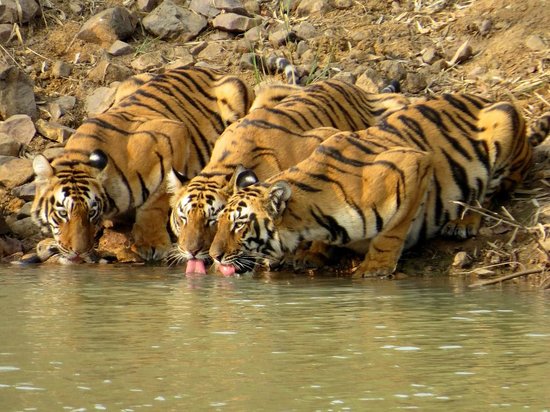
Tadoba Andhari Tiger Reserve, Maharashtra: A beautiful park that is still less known, Tadoba offers a chance to sight the dhole, or wild dog, which is often considered more difficult to spot than the tiger itself. There are also several elegant raptors, including the crested serpent eagle, gray-headed fishing eagle and the honey buzzard.
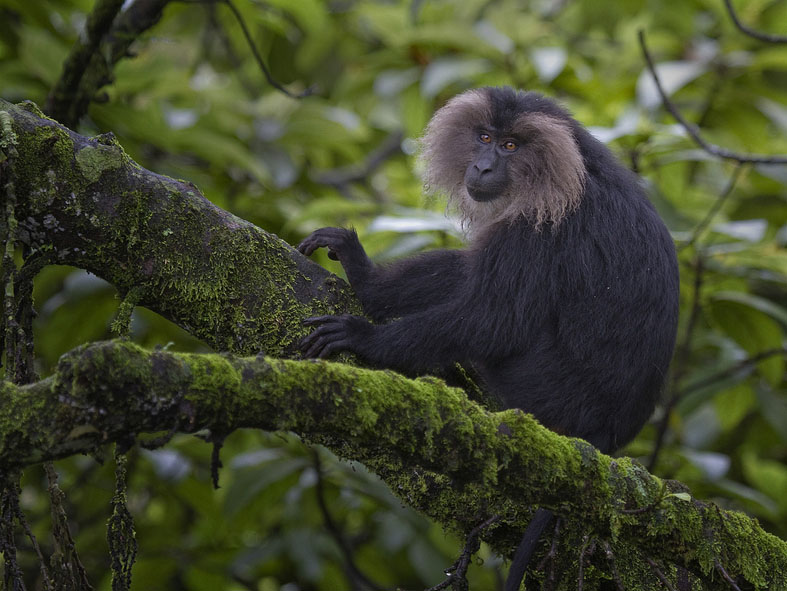
Silent Valley National Park, Kerala: Located in rainforest territory, Palakkad is as lush and beautiful as they come. Recently named a UNESCO World Heritage Site (2012), it is part of the delicate Nilgiri Biosphere Reserve, revered for its biodiversity. Spot tigers, leopards and elephants, and watch out for snakes and reptiles, as there are well over 400 species here.
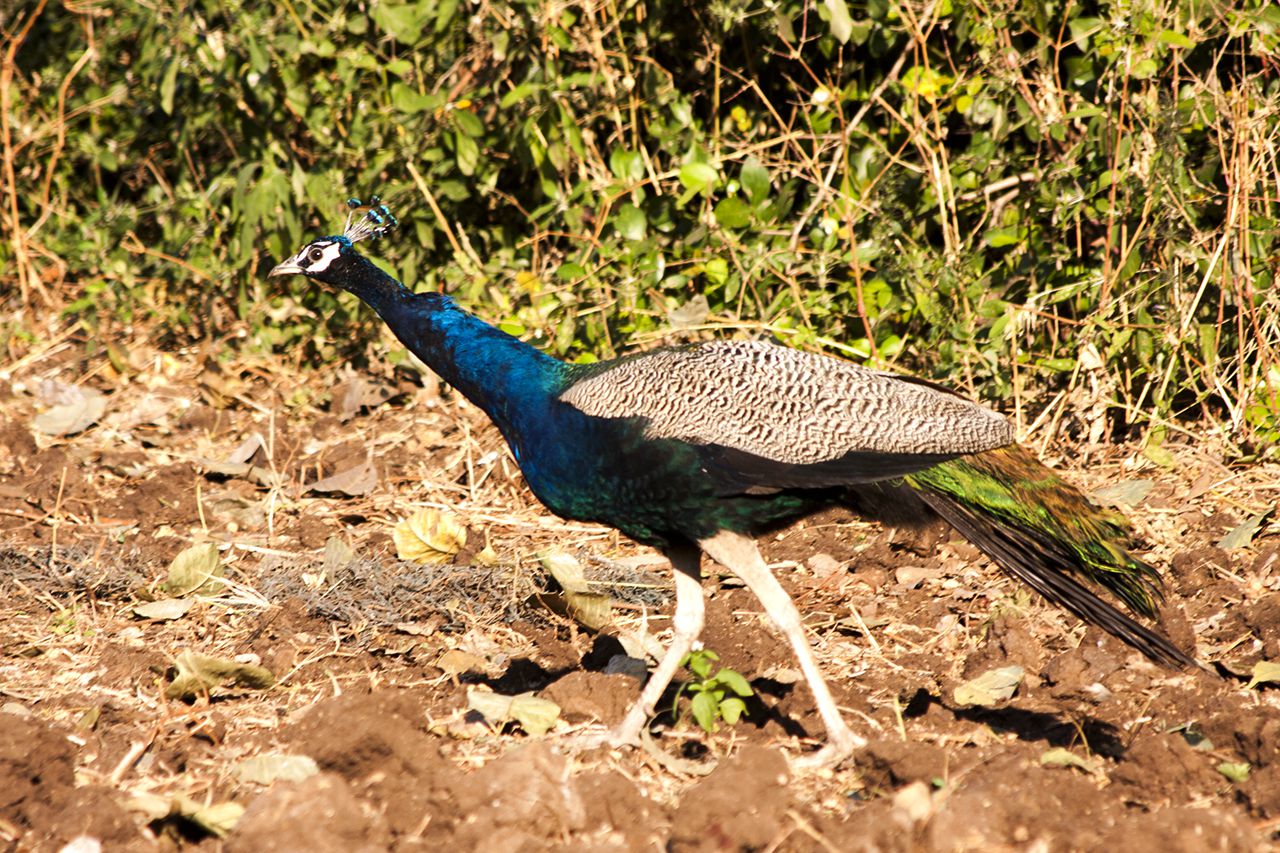
Gir National Park, Gujarat: Your only chance to see the Asiatic lion in the wilderness, not just in India but anywhere in the world, Gir has a special place in India’s wildlife experience. Home to the majestic but endangered beast, this is also your chance to spot elusive animals like the panther, jackals, hyenas and porcupines. Known locally as Sasan Gir, spotting one of the lions against the grasslands of Gir is a truly unforgettable moment.

Vikramshila Gangetic Dolphin Sanctuary, Bihar: Lauded for its conservation efforts, the Vikramshila Sanctuary is in the Bhagalpur district of Bihar covers a 50km stretch of the Ganges. In 2009, the Gangetic dolphins were declared India’s National Aquatic Animal, and this is a rare chance to spot them in large numbers.
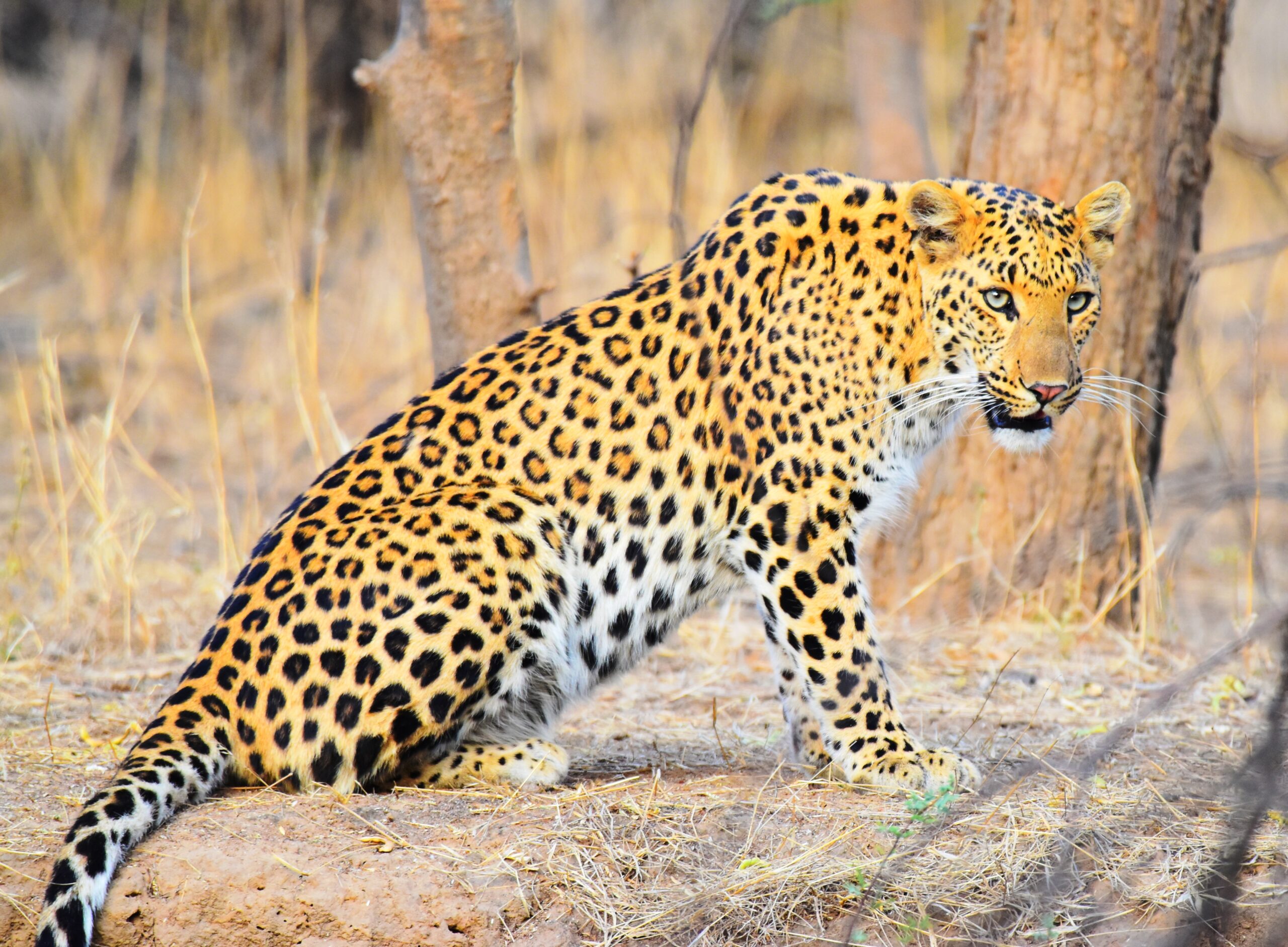
Jhalana Reserve Forest, Rajasthan: The surprise of the season is definitely India’s newest wildlife destination: the recently opened Jhalana Reserve Forest. Over 20 leopards have adopted Jhalana as their home over the past decade, leading the government to declare it a protected reserve and then, in May 2017, open the park up for guided jeep safaris. Plenty of birds like the shikra and white-eyed buzzard, and lots of peacocks, add beauty to the lush forest.
Salim Ali Bird Sanctuary, Goa: Not all wildlife experiences are about the big cats. In Goa, this small sanctuary for birds on the island Chorao on Mandovi River is named after India’s premier ornithologist, Dr Salim Moizuddin Ali. Make your way into the mangroves at this little wonderland in canoe-like boats over a channel of canals that lead through a paradise for bird lovers. Egrets, kingfishers, cormorants and drongos abound, and look out for rarer species such as the black bittern and the pied avocet.
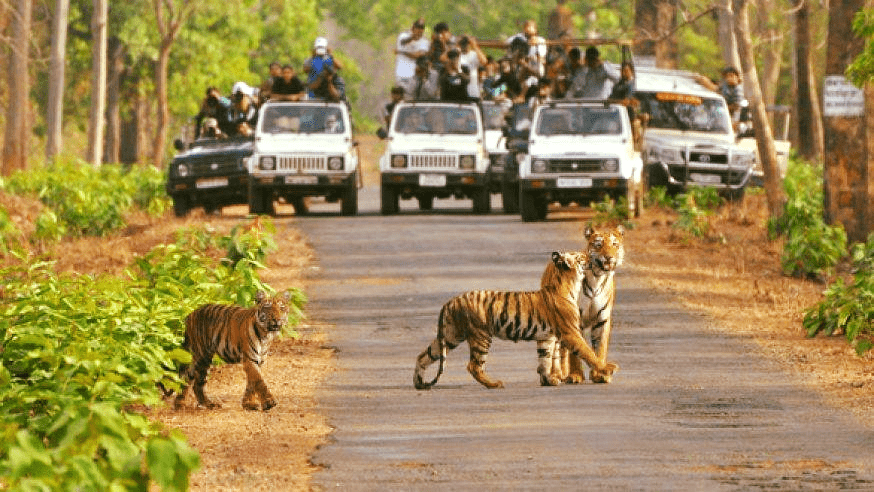
Ranthambore National Park, Rajasthan: There is a good reason why this is the most popular (and the most crowded) national park in the country: fantastic tiger sightings. Ranthambore is more than just an opportunity to spot wildlife – one of India’s prettiest parks, it is dotted with historical monuments and hunting lodges of the maharajas of yore, adding charm to the landscape. Spot scores of strikingly beautiful birds such as cormorants, lapwings and eagles.
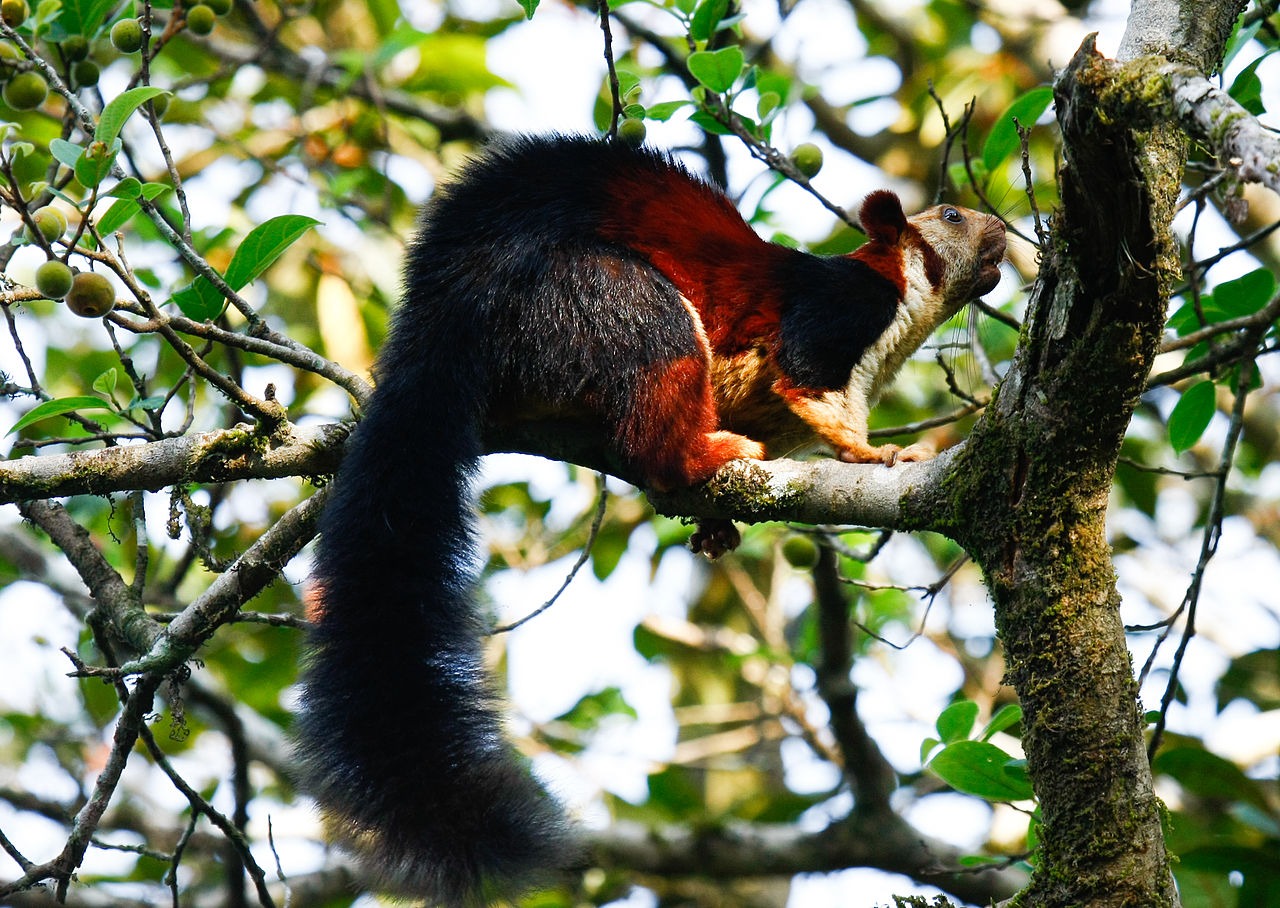
Periyar National Park, Kerala: For an experience that really differs from the wildlife parks of north and east India, head to the south, where the green is greener than any you have ever seen. Criss-crossed by the Periyar River, this evergreen forest is home to elephants and tigers, and creatures not seen in north India, such as the Malabar giant squirrel and Nilgiri langur. Locally called Thekaddy, this is a lovely hilly tract with nice trekking options — a wonderful way to see birds including the Nilgiri wood pigeon and laughing thrushes.













